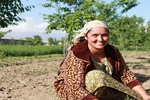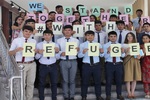Home > News of the Region > News
News

UNHCR viewpoint: 'Refugee' or 'migrant' - Which is right?GENEVA, Aug 27 (UNHCR) – With almost 60 million people forcibly displaced globally and boat crossings of the Mediterranean in the headlines almost daily, it is becoming increasingly common to see the terms 'refugee' and 'migrant' being used interchangeably in media and public discourse. But is there a difference between the two, and does it matter? Refugees are defined and protected in international law. The 1951 Refugee Convention and its 1967 Protocol as well as other legal texts, such as the 1969 OAU Refugee Convention, remain the cornerstone of modern refugee protection. The legal principles they enshrine have permeated into countless other international, regional, and national laws and practices. The 1951 Convention defines who is a refugee and outlines the basic rights which States should afford to refugees. One of the most fundamental principles laid down in international law is that refugees should not be expelled or returned to situations where their life and freedom would be under threat. The protection of refugees has many aspects. These include safety from being returned to the dangers they have fled; access to asylum procedures that are fair and efficient; and measures to ensure that their basic human rights are respected to allow them to live in dignity and safety while helping them to find a longer-term solution. States bear the primary responsibility for this protection. UNHCR therefore works closely with governments, advising and supporting them as needed to implement their responsibilities. Migrants choose to move not because of a direct threat of persecution or death, but mainly to improve their lives by finding work, or in some cases for education, family reunion, or other reasons. Unlike refugees who cannot safely return home, migrants face no such impediment to return. If they choose to return home, they will continue to receive the protection of their government. For individual governments, this distinction is important. Countries deal with migrants under their own immigration laws and processes. Countries deal with refugees through norms of refugee protection and asylum that are defined in both national legislation and international law. Countries have specific responsibilities towards anyone seeking asylum on their territories or at their borders. UNHCR helps countries deal with their asylum and refugee protection responsibilities. So, back to Europe and the large numbers of people arriving this year and last year by boats in Greece, Italy and elsewhere. Which are they? Refugees or migrants? So, at UNHCR we say 'refugees and migrants' when referring to movements of people by sea or in other circumstances where we think both groups may be present – boat movements in Southeast Asia are another example. We say 'refugees' when we mean people fleeing war or persecution across an international border. And we say 'migrants' when we mean people moving for reasons not included in the legal definition of a refugee. We hope that others will give thought to doing the same. Choices about words do matter. By Adrian Edwards, Geneva 02.09.2015 |

Refugee athletes compete for first time at Asian Games
25.09.2017

Refugee athletes prepare to compete at Asian Games in Turkmenistan, as Opening Ceremony takes place
18.09.2017

UNHCR supports the right of refugees to education
07.09.2017

Sowing Seeds of Hope
24.07.2017

UNHCR and Sheraton Setting Up Innovative Partnership
04.07.2017

The World Refugee Day 2017 in Almaty
29.06.2017

Reaching Out to Youth
16.06.2017

UNHCR at EXPO-2017 Astana
14.06.2017

Roundtable on Birth Registration
12.06.2017

JOINT COMMUNIQUE BETWEEN UNHCR AND UNICEF
02.06.2017

